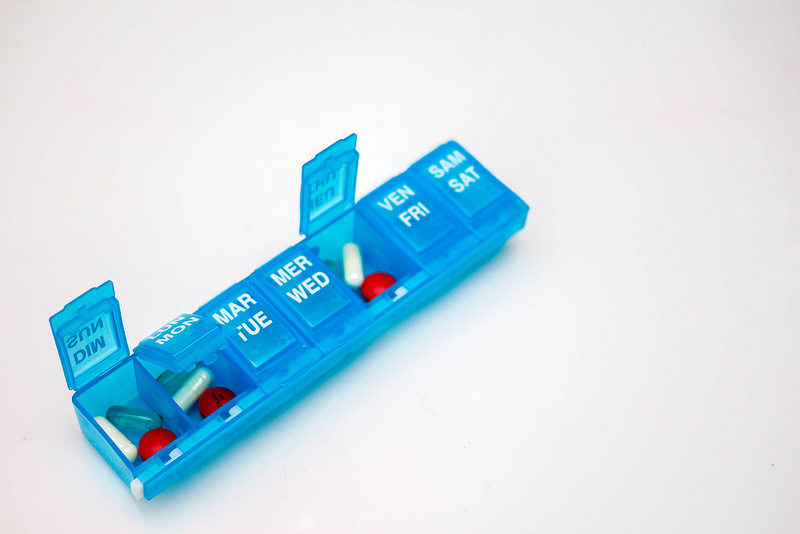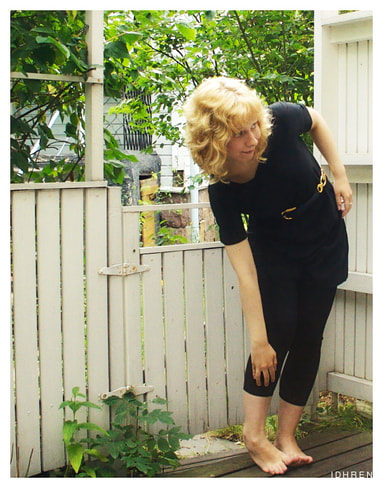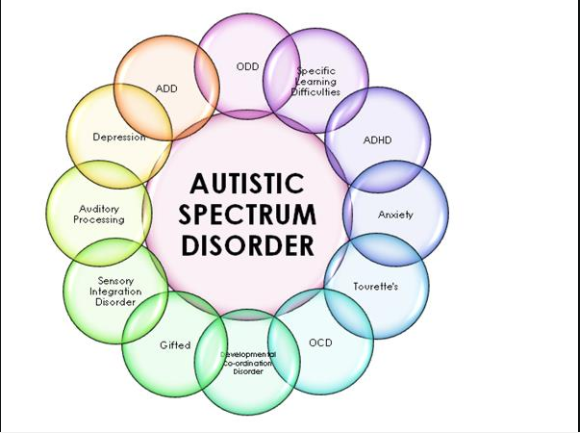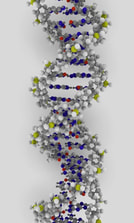|
Yesterday I was bringing in mustard greens and arugula from the garden for our dinner salad, and I accidentally brought in something else, someone who was really not happy about this change in her afternoon plans. I was notified of her displeasure by a sharp jab in my right thumb.
Good thing I was making salad dressing - a quick peel & cut of a garlic clove, a moment of discomfort as I pressed the cut clove to the sting, and a few minutes of inconvenience as I held it to the area, and I was all better. This is somewhat amazing to me, as my reaction to something as humble as a mosquito bite is a huge welt and days of itching. Garlic works on bee and wasp stings just as it works in your marinades - it breaks down the proteins. The proteins are what your body reacts to, the inflammation around a bee sting is a result of your body trying to break down those proteins so they can't hurt you. When garlic is applied immediately to an insect sting, it removes the need for your immune system to respond. And so today I have a working thumb instead of a huge sausage. What are YOUR kitchen cures for bee stings? Leave your comments below. I recently watched a webinar by Dr. Perlmutter, renowned integrative neurologist, based on research he has used in his soon to be released book, Grain Brain. In it he showed studies of how blood sugar levels are directly correlated with Alzheimers and Parkinson's disease. Not only are diabetics twice as likely to develop Alzheimer's as non-diabetics, but even people who have modestly elevated blood sugars (above 95) are at an increased risk.
Here's the link if you want to watch it. It's about an hour, but a VERY important hour. (It's not overly complicated or full of doctor-speak, either). If you've been tested for MTHFR and it's come up that you're heterozygous or homozygous for one or both of the SNPs, chances are that someone has told you you need to take methylated B12 and folate, and someone else has told you NOT to, because you could end up overmethylated. What's a poor MTHFR to do?
Well, I just found a real nugget at mthfr.net - a quick & easy test to see if you're overmethylated (and need to take a non-methylated version of B12 like hydroxycobalamin) or whether you're undermethylated, and desperately need methylcobalamin, the methylated form of B12. Ready? Here goes: Methods to Understand if You’re Hypomethylated or Hypermethylated "Take some Niacin in the form of nicotinic acid. Chew 1/10th a tablet of Niacin and then swallow. Niacin utilizes s-adenosylmethionine (SAM) when breaking down. If you flush strongly on 50 mg, you are likely hypomethylated (lack of SAM). If you do not flush much, you are likely a ‘normal methylator’ (balanced SAM). If you do not flush at all, you may be hypermethylated (excessive SAM). Side Effects from Methylfolate: If you are taking methylfolate and experiencing these side effects, then you are likely hypermethylated." Simple, right? Well, except for those who are hypomethylated and then get hypermethylated due methyl trapping from problem SNPs further on down the line. But if that happens, just nibble on some more niacin, and schedule with your MTHFR doctor. It's that time of year. Finally the tourists are gone, the weather is perfect and the traffic is manageable, but we are not in the clear. We have another crop of visitors who may even more irritating than the group house next door. Relatively recent immigrants to the area, they have been showing up more and more frequently on resident ankles and feet. Those with history in the South call them chiggers, as the multitude of incredibly itchy bites strongly resembles an exposure to chiggers. The folks at Cornell University Extension have done research, however, that shows these unwelcome visitors to be Lone Star Tick larvae. One last piece of bad news - these larva can be enough to produce the Alpha-Gal allergy, the one that makes people into instant, unwilling vegetarians. ( A quick visit to the ER for anaphylaxis after eating meat will convince anyone to give it up.) Again, we find that the Hamptons are a special place - one of only two areas in the country with a large number of residents with Alpha-Gal allergy (more on this in a future post). Now for the good news. You CAN stop the itch. How to Stop the ItchApply a thin layer of oil (any kind, although I prefer castor oil because it contains its own healing properties) followed by a sprinkle of CAYENNE PEPPER. Yes, cayenne. No, it doesn't burn. What it does is deplete Substance P, a molecule that carries pain signals to the brain. And makes you STOP ITCHING. Almost instantly. Covering the area with an old sock will keep the cayenne from brushing off on your clothing or furniture. Reapply as necessary.
After her son was diagnosed with Austism, Doctor Anne couldn't find information to help him. She dedicated years of studying autism in order to help people with autism live their best lives. Doctor Anne Van Couvering is a member of MAPS and ILADS and graduated with honors from University of California at Berkeley. She has studied nutrigenomics and methylation from Dr. Ben Lynch, Dr. Paul Anderson, and Dr. Jess Armine.
I can't believe I ate the whole thing...Are you someone who dreads all the deliciousness of the holidays? Someone for whom the food feels good going down, but not so much when it comes back up? Do you get phlegm or a drippy nose after eating? Do you run for an antacid or a TUMS? This is the blog for you!
One thing that does not make logical sense to people is that the symptoms of low stomach acid and high stomach acid are basically the same. When tested, 95% of people reporting acid reflux actually have LOW stomach acid, especially elders. For some reason, this seems to be missing information in MD schools so your MD will cleverly prescribe (or you will cleverly go down to the drug store and buy) ANTACIDs or ACID-BLOCKERS. The symptom is regurgitation of acid from the stomach into the esophagus. We have a system in place to prevent that - it is a sphincter at the bottom of the esophagus, called the Lower Esophageal Sphincter (LES). It is given the signal to close by a certain level of stomach acid - so if you don't have that level, it doesn't close, and any acid you do make backs up into your esophagus, causing that burning pain. The drippy nose and phlegm are because your body is desperately trying to make mucous to protect those tissues. Long term exposure to this acid can cause mucous forming cells to form in the esophagus, and these tissue changes are called "Barrett's esophagus" and are pre-cancerous. So, we definitely want to avoid this, and that is the rationale for acid blockers, which fix the symptom and protect against Barrett's, but at a fairly high cost - and the problem hasn't been fixed, only the symptom. Another contributor can be a hiatal hernia, when your stomach pushes up through the hole in your diaphragm designed for your esophagus and major arteries to pass through. Then, when you breathe or use your diaphragm, the stomach gets strangulated and squeezes the acid up into the esophagus. Hiatal hernias are caused by things that put pressure on your abdomen with no other place for the pressure to be relieved - straining at stool, picking things up while holding your breath, violent coughing or vomiting, tight waistbands, excess weight. Antacids work, but only because they keep your stomach from making any acid at all. So, what are the functions of stomach acid - oh, nothing important. Let's see - protein digestion, for one - can't break proteins down for the next step of digestion without stomach acid. Mineral absorption, including iron. B12 absorption. Killing parasites and bacteria. Also, low stomach acid contributes to constipation. Safety studies on antacids were done for 4-6 weeks. That is the length of time they are approved for - but I have patients who come in and have been on them for decades. Side effects: loss of bone density, osteoporosis (due to lack of mineral absorption). Constipation. Dementia (yep, it's right there in the literature). Nerve pain/neuralgia (due to low B12). Anemia (due to poor iron absorption). Dysbiosis (because bad bacteria aren't killed and overgrow). Parasites (ditto, not killed). *Dysbiosis leads to inflammation and inflammation is the cause of almost every chronic disease. And so on. Now, anyone who has been on acid blockers can tell you that when they go off of them, it HURTS. And this convinces them to go back on. Well, it hurts because your body has a feedback system - you have low stomach acid, you make more. If you have none because you've been on acid blockers (which basically turn off the system) and then you stop - well the body goes "oh my god, there's no acid here, we've got to make a whole bunch". And thus this rebound symptom. I have successfully helped many people get off of antacids and become symptom free after years of chronic reflux - it isn't that hard. Basically, they need demulcents to protect their esophagus from the acid as they stop the acid blockers, they need some way to INCREASE their stomach acid, and sometimes they also need an herbal formula to tighten up their lower esophageal sphincter. Many also need to have their hiatal hernia reduced, which can be done with a fairly simple visceral manipulation (which sometimes needs to be repeated a few times before it holds) and education about reducing actions which push the stomach up through the diaphragm. Also, avoiding trigger foods is important - soda, tomatoes, chocolate, coffee and mint seem to be almost universal, but specific food allergens can also trigger reflux. Eating late at night is a problem because the stomach is full, and gravity is now against you. If you have a hiatal hernia or poor LES tone or stomach acid that is not strong enough to create the pH that triggers the LES to close, your stomach acid will spill up into the esophagus. Many people with bad gastric reflux will prop themselves up on pillows or elevate the head of the bed. I took the time to write this up because it is a huge problem, acid blockers are one of the highest selling drugs, prescription or OTC, and they cause a lot of problematic side effects and may even set the stage for long term chronic disease. And because the average sensible person (and the average sensible MD) will think "symptoms of too much acid? What we need is an acid blocker" when actually the case is just the reverse. Kind of like the thinking that eating fat makes you fat - makes sense, but isn't the least bit true. Here's to ENJOYING your holiday meals! In health, Dr. Anne Hallowe’en – an entire day, even week, devoted to collecting candy. If you’re a parent trying to get your kid to eat healthfully, this holiday can be one of the most challenging. What’s a parent to do? :
What are your best pointers for a Healthy Hallowe’en? Leave your tips below. If you start to get sick... Remember, fever is your friend - it is how your body destroys those viral invaders! Do not reduce fevers unless they go over 102* for adults and 103* for children. EXCEPTION – any fever in an infant should receive prompt medical attention. If you or your child experiences a stiff neck, high fever (over 104*) or changes in consciousness, you need to see a doctor ASAP. Below you will find how to care for a cold and flu at home. Day 1: "Hit it hard!"
Day 2: "Keep going, but a little less so"
Day 3 and beyond: "Easy does it"
Prevention is the best cure.Below are some tips on how to prevent getting the flu or getting sick with a cold. Remember, prevention is the best medicine.
GENETIC TESTING PROTOCOL
If steps 2-5 are more than you are able to manage, we can do it for you for $60. |
ArchivesCategories |
Services |
Doctor Anne |
|











 RSS Feed
RSS Feed